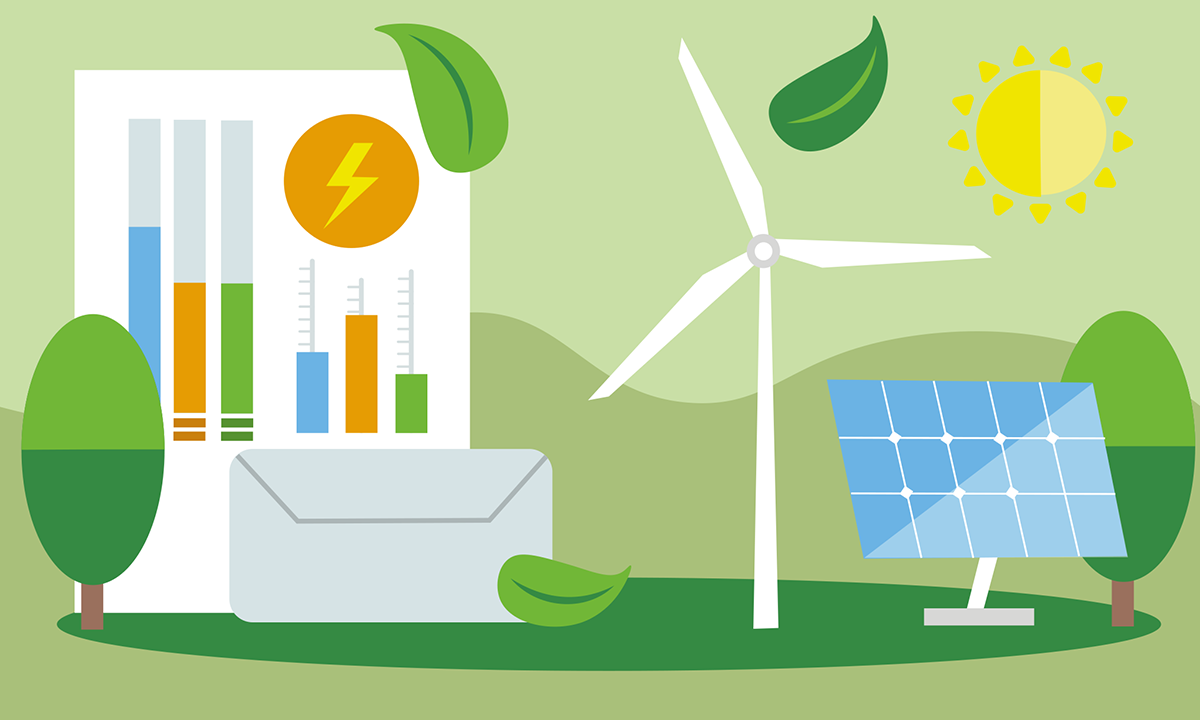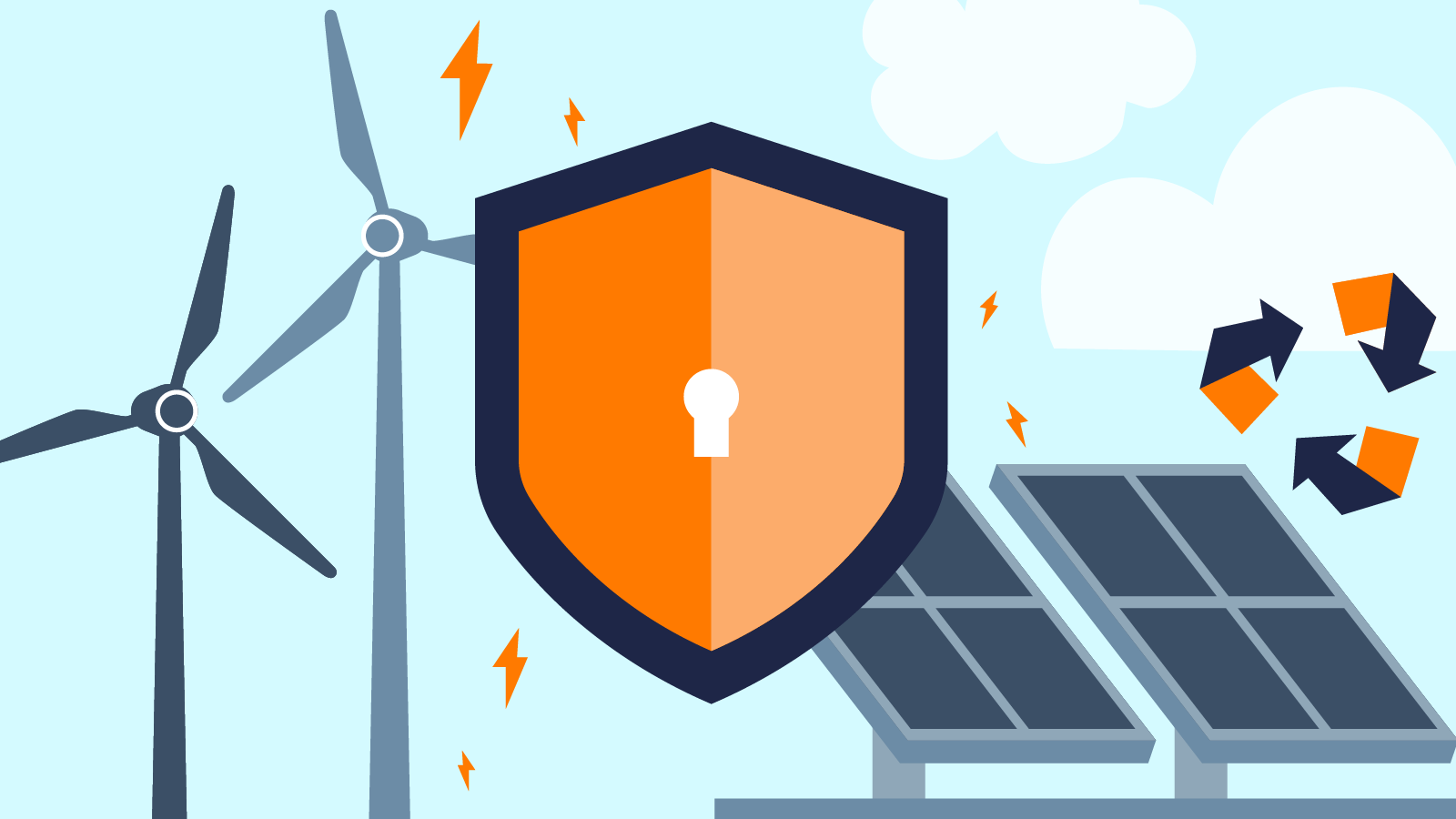The positives behind choosing green energy for your company.

As global awareness of environmental issues grows, many companies are looking at ways to turn themselves as green-friendly as possible while maintaining the same level of service.
One such sector where these companies look at making a significant change is their energy, as green energy tariffs have seen a rise over recent years as these businesses look to renewable energy sources to power their operations.
This shift isn't just about protecting the planet; it's also about bolstering profitability and securing a competitive edge. Renewable business energy offers a multitude of advantages that extend beyond the environmental benefits, from significant cost savings to enhanced brand reputation.
In this guide, we’ll explain some of the advantages and benefits of renewable energy for your business in the hopes of making you more informed on the topic of green energy for business, particularly if that’s something you are contemplating for your company.
The most common reason why businesses move over to renewable energy sources is the cost savings involved.
Traditional energy sources, which include gas, oil and coal are limited, which means that energy prices are constantly rising slowly each year.
And with oil and gas prices, international politics play a big part in bill costs, as we have seen most recently with the war in Ukraine. When things like this happen, energy bills will fluctuate considerably, causing cash flow problems and leading to unpredictable higher prices.
Those issues are largely nonexistent with renewable energy sources. As the name suggests, renewable energy is all about using green energy sources that are plentiful and reusable, such as solar and wind.
Renewable energy is more consistent, with no sharp rises in costs month-to-month or year-to-year due to the abundance of energy sources that are not in any threat of depleting.
As such, monthly costs typically stay the same, so you can better predict and make financial plans for the business.
Furthermore, there are much lower maintenance costs involved with renewable energy systems, in particular solar panels. Solar panels have a long lifespan and are relatively inexpensive to maintain and get fixed should they need fixing.

Adopting renewable energy is a powerful way for businesses to enhance their brand image, closely aligning with the growing global emphasis on sustainable business practices.
By investing in renewable energy, businesses send a clear message to customers, investors, and the community that they are committed to environmental stewardship.
This commitment helps build a brand image that resonates with eco-conscious consumers who are increasingly making purchasing decisions based on the environmental impact of their choices.
Demonstrating such responsibility can distinguish a brand in a crowded market, making it more appealing to a broad audience. It can also lead to customer loyalty, should it be that what the business is providing to consumers is pleasing to them.
People’s words and opinions on a company’s brand image are still as important as they always have been, so getting and keeping those on your side through sustainable business practices can lead to improved engagement and thus more consumers.
On the investor's side, an increasing number look to fund companies that engage in sustainable business practices. Using renewable energy can make a business more attractive to these ethical investors, which will bring in more funding and can lead to increased confidence in those who have already invested.
But it's not just those outside the business who could look kindly upon these practices. Companies that embrace sustainable business practices often find it easier to attract and retain employees, particularly among younger generations who prioritise environmental issues in their personal and professional lives.
Employees tend to feel more motivated and engaged when they work for a company that reflects their values. This can lead to higher productivity and a more committed workforce.
Like with residential renewable energy, the government gives incentives to businesses that opt for green energy, with funding and grants available for a range of eco-friendly energy solutions in place in your company.
These incentives are part of a broader effort to promote sustainable practices and reduce carbon emissions across different sectors.
It is most common in the UK to see small businesses looking to adopt these solutions and employ these practices, and this is thanks to the government schemes that are in place to aid and support them. However, medium-sized businesses and even large corporations can benefit from them should they adopt the practices.
Solar panels are often used as the best example as they are the most affordable, easiest to install and set up and can typically be done so on almost every commercial property.
The idea behind the grants, such as the Green Energy and Solar Panel Grants, is to help reduce the upfront costs of installing eco-friendly systems which includes solar panels and wind turbines, where the highest expense is for the purchasing and installation.
But it’s not all about just handing money over, as depending on the size of your business, you could be eligible for support as well as funding.
The Carbon Trust Green Business Fund provides energy assessments and support for enhancing energy efficiency to small and medium-sized enterprises in England, Scotland, and Wales, primarily aiming to help them improve their energy usage and consider investments in renewable energy.
In a similar vein, the Business Energy Efficiency Programme (BEEP) offers advice and grant funding to businesses to help reduce energy use and lower carbon emissions.
For those in the renewable energy sector, the Energy Entrepreneurs Fund is in place, providing a competitive funding scheme for developing and demonstrating state-of-the-art technologies, products and processes within the sector.
These grants are given out freely though. Your business has to be eligible for them, which means you should ensure you are meeting the eligibility criteria before you apply for your grants.
Be sure to research the funding you’d like or need and find out what you need to do to be eligible for it, as well as general research into the various grants available, as there are more that we have not mentioned above that may be more beneficial to your business.
We touched on this a bit earlier when speaking about cost savings and cheaper bills, but now let’s look further into the reliability and security that renewable energy offers.

As mentioned and should come as no surprise, renewable energy sources such as solar and wind power are inherently more reliable over the long term because they depend on natural resources that are abundant and inexhaustible.
Unlike fossil fuels, which can fluctuate widely in price and availability due to geopolitical tensions, market dynamics, and regulatory changes, the sun and wind provide a steady and predictable source of energy. This predictability allows businesses to plan their energy usage and costs more effectively.
Better aiding in predictability is the ever-improving technological advancements in renewable energy systems, something which we will touch on later. These advancements increase the source's reliability and can also increase output consistency.
Instead of relying on large, centralised power plants, businesses that rely on renewable energy sources can generate power on-site using solar panels or small wind turbines, depending on which they have set up.
This reduces their vulnerability to large-scale power outages or disruptions in the grid should they occur.
Decentralised energy systems can be particularly advantageous for businesses in remote or rural areas where grid infrastructure may be less reliable.
Similar to the point above, investing in renewable energy can enhance your business's energy security by reducing its reliance and dependence on imported fuels, which can be subject to outside factors that will cause volatile prices and supply disruptions.
Generating your own energy through solar panels or small wind turbines will enable you to be shielded from such uncertainties and enjoy more stable energy costs, providing a piece of mind and giving a competitive advantage by enabling more predictable budgeting and financial planning.
With many countries, let alone companies, around the world taking a better viewpoint of the sustainability of the planet, positioning your business in such a way that puts you ahead of the curve can bring benefits should stricter regulations on carbon emissions be imposed.
This isn’t a case of ‘if’ either, as most developed and developing countries are increasingly imposing these regulations, so by implementing renewable energy into your business now, you can save from any disruptions to operations when it becomes more mandatory for businesses to do so, plus avoid any potential penalties should the government choose to impose them.
The integration of innovation and technology in renewable energy offers significant benefits for businesses, enhancing operational efficiency, opening new growth avenues, and providing a competitive edge in the marketplace.
Renewable energy technologies are consistently evolving, driven by both innovation and investments. Advancements in solar panel efficiency, wind turbine design, and energy storage solutions such as batteries have dramatically increased the effectiveness and reduced the cost of renewable energy systems over time.
By implementing these cutting-edge technologies, you could find greater operational efficiencies. For example, smart solar panels that track the sun’s movement across the sky can generate more electricity than static panels.
Similarly, modern wind turbines equipped with sensors can adjust blade angles in real time to capture the optimal amount of wind.
Then looking at the energy management systems, the innovations and advancements with them can allow businesses to better monitor and control their energy usage. Smart grids and smart meters provide real-time data on energy consumption and generation, enabling businesses to make informed decisions about their energy practices.
Businesses that adopt these technologies can benefit from the latest improvements, maximizing their energy output while minimizing costs and also increasing operational efficiency.
This depends on what source you are opting for, but you would be looking at a higher initial cost due to installation and setup.
It’s important to remember though that these sources are in play for the long run, and that while they may be heavy initial expenses, they should serve as a great cost-saving method in the long run.
Also don’t forget about the government funding grants and support that can help ease the initial costs.
The most efficient and effective types of renewable energy include solar, wind, geothermal and hydroelectricity.